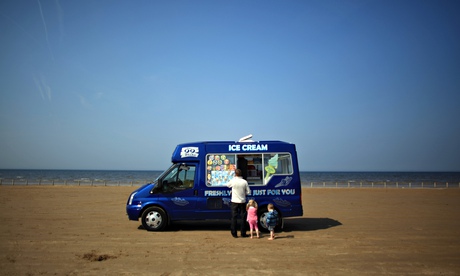
It is wonderful to read a book about beaches on the beach, although this is not for those who prefer to keep their heads in the sand. Jean Sprackland is a fine poet and her revelatory book, although scattered with poetry, is written in transparent, undeceived prose. It strikes a careful balance between marvelling at the shore (the estuarial beaches of Ainsdale Sands between Blackpool and Liverpool) and monitoring a terrifying fall from grace. It considers our modern spoiling of the waters and the cavalier way in which we take coastal wonders for granted – as though confident the sea could never really suffer.
The book is, at every turn, minutely researched. There is an astonishing account of the leaking of anti-depressants: "Doctors issue 30m prescriptions a year for Prozac and other anti-depressants classed as selective serotonin reuptake inhibitors. Fluoxetine, the active ingredient in these drugs, has been leaking into oceans and rivers for years, but the extraordinarily steep rise in prescription means that levels are rocketing." And then things get surreal as she describes a shrimp population in decline because, on anti-depressants, they become reckless, swimming into the sun and getting killed. All this will make readers step into the sea with firmly sealed lips.
But alarms are offset by pleasure. Reading this book resembles beachcombing: one is unable to guess at what will wash onto the shore next – its many happy and unhappy returns. Sprackland is a tireless investigator. Everything she finds is the equivalent of a message in a bottle to which she pens a response (she even stumbles upon a bottled message or two). She considers a sea mouse (with iridescent green and bronze hair), sea potatoes, sea squirts and other new (to me) creatures such as the gribble (about whom one must not quibble). The names are fantastic fun – as if Edward Lear had just made them up. And Sprackland's lists are a joy. The seaweed names read like a poem: " … gutweed, sea lettuce, velvet horn, dabberlocks, furbelows, thongweed, peacock's tail, sea noodle, red rags, pepper dulse.'
I also enjoyed the list taken from The Arrow Seaside Companion (1956) of "useful finds" on a Dorset beach, compiled by Hugh Stoker, including half-a-dozen ladders, a nylon parachute, a child's rocking horse, a tinned chicken and a shove-ha'penny board – a floating toyshop of a miscellany. And there is a persistently exciting frisson about the wavering distinction between plunder and dross.
What is striking about Hugh Stoker's list, Sprackland points out, is that there is no plastic on it. She enlightens us mercilessly about what most of us hope to forget – the scale of the assault of plastic in the sea (something crusading surfers protest about). We learn about grain-sized pellets of plastic "nurdles" awarded, by surfers, a name more beautiful than they deserve: "mermaid's tears". And we mourn for the albatross, a casualty of all this plastic. Sprackland describes the heartbreaking discovery that albatrosses are killed because of having eaten plastic cigarette lighters, Lego bricks, toothbrushes. She writes vividly, too, about seals (each with unique fur patterns like human fingerprints) and about plagues of ladybirds and seabirds' cries. The Mediterranean gull's call will be "uncannily familiar to any parent of teenagers" a distinctive, rising-then-falling note, like enthusiastic, nasal "Yeah!" but with slightly whining tone."
She quotes Louis Macneice: "World is crazier and more of it than we think." And she backs this up describing driftwood and its diverse uses. She devotes a whole chapter to a random Cunard tea cup – miraculously unbroken after 50 years in the sea – which takes her on a journey of discovery, though never back to the original drinker. And one morning, she finds a singular blue wooden door washed onto the beach which, in her hands, seems sure to swing open on a new world.

